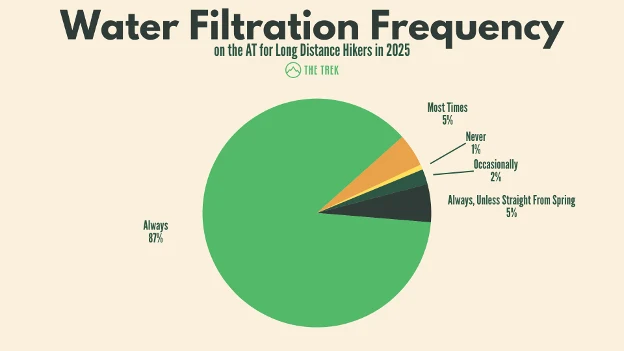Drugs.com: It’s Buggin’ Me! How to Safely Use an Insect Repellent
Drugs.com: It’s Buggin’ Me! How to Safely Use an Insect Repellent

Drugs.com: It’s Buggin’ Me! How to Safely Use an Insect Repellent
YouTube video highlight
The use of insect repellents is a safe and effective way to prevent insect and tick-borne diseases.
Read more about the projectIt’s Buggin’ Me! How to Safely Use an Insect Repellent
Why Should I Use an Insect Repellent?
The use of insect repellents is a safe and effective way to prevent insect and tick-borne diseases.
Mosquito bites can lead to:
- West Nile virus
- Zika virus
- Malaria
- Dengue fever
- Chikungunya virus
- Encephalitis
- Yellow Fever (rare in the US)
while the small deer tick can cause Lyme disease. Other tick-borne diseases include Rocky Mountain Spotted Fever, Powassan virus, Ehrlichiosis and Encephalitis.
The U.S. Centers for Disease Control (CDC) strongly recommends the use of insect repellents to prevent transmission of West Nile virus and other mosquito-borne diseases. Most cases of malaria diagnosed in the U.S. originate from other parts of the world.
How Do Insect Repellents Work?
Many insects like mosquitoes are attracted to the host because of their skin odors and carbon dioxide from their breath.
Repellents contain an ingredient that makes the person 'unattractive' for biting; however, repellents do not kill the insect. Repellents are effective only at short distances from the treated surface, so the user may still see mosquitoes flying nearby.
In the warmer months it is important to use an insect repellent; in tropical climates it may be needed year-round.
Here's a tip if you're an avid gardener or hiking: insects and arachnids that bite in self-defense instead of for feeding -- such as bees, some ants, yellow jackets, wasps, hornets or spiders -- cannot be fought off with insect repellents.
Continue reading the complete article on safely using insect repellents medically reviewed by Leigh Ann Anderson PharmD here.
Drugs.com: It’s Buggin’ Me! How to Safely Use an Insect Repellent


It’s Buggin’ Me! How to Safely Use an Insect Repellent
Why Should I Use an Insect Repellent?
The use of insect repellents is a safe and effective way to prevent insect and tick-borne diseases.
Mosquito bites can lead to:
- West Nile virus
- Zika virus
- Malaria
- Dengue fever
- Chikungunya virus
- Encephalitis
- Yellow Fever (rare in the US)
while the small deer tick can cause Lyme disease. Other tick-borne diseases include Rocky Mountain Spotted Fever, Powassan virus, Ehrlichiosis and Encephalitis.
The U.S. Centers for Disease Control (CDC) strongly recommends the use of insect repellents to prevent transmission of West Nile virus and other mosquito-borne diseases. Most cases of malaria diagnosed in the U.S. originate from other parts of the world.
How Do Insect Repellents Work?
Many insects like mosquitoes are attracted to the host because of their skin odors and carbon dioxide from their breath.
Repellents contain an ingredient that makes the person 'unattractive' for biting; however, repellents do not kill the insect. Repellents are effective only at short distances from the treated surface, so the user may still see mosquitoes flying nearby.
In the warmer months it is important to use an insect repellent; in tropical climates it may be needed year-round.
Here's a tip if you're an avid gardener or hiking: insects and arachnids that bite in self-defense instead of for feeding -- such as bees, some ants, yellow jackets, wasps, hornets or spiders -- cannot be fought off with insect repellents.
Continue reading the complete article on safely using insect repellents medically reviewed by Leigh Ann Anderson PharmD here.
Drugs.com: It’s Buggin’ Me! How to Safely Use an Insect Repellent


It’s Buggin’ Me! How to Safely Use an Insect Repellent
Why Should I Use an Insect Repellent?
The use of insect repellents is a safe and effective way to prevent insect and tick-borne diseases.
Mosquito bites can lead to:
- West Nile virus
- Zika virus
- Malaria
- Dengue fever
- Chikungunya virus
- Encephalitis
- Yellow Fever (rare in the US)
while the small deer tick can cause Lyme disease. Other tick-borne diseases include Rocky Mountain Spotted Fever, Powassan virus, Ehrlichiosis and Encephalitis.
The U.S. Centers for Disease Control (CDC) strongly recommends the use of insect repellents to prevent transmission of West Nile virus and other mosquito-borne diseases. Most cases of malaria diagnosed in the U.S. originate from other parts of the world.
How Do Insect Repellents Work?
Many insects like mosquitoes are attracted to the host because of their skin odors and carbon dioxide from their breath.
Repellents contain an ingredient that makes the person 'unattractive' for biting; however, repellents do not kill the insect. Repellents are effective only at short distances from the treated surface, so the user may still see mosquitoes flying nearby.
In the warmer months it is important to use an insect repellent; in tropical climates it may be needed year-round.
Here's a tip if you're an avid gardener or hiking: insects and arachnids that bite in self-defense instead of for feeding -- such as bees, some ants, yellow jackets, wasps, hornets or spiders -- cannot be fought off with insect repellents.
Continue reading the complete article on safely using insect repellents medically reviewed by Leigh Ann Anderson PharmD here.

























































































































